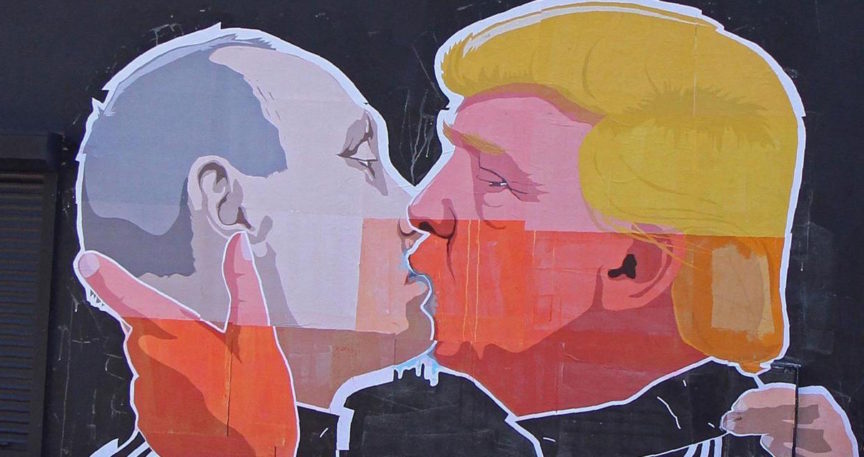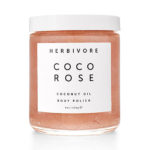
Miranda Levy is a major in Women, Gender & Sexuality Studies at Elon University where she pens a sex column for its student-run lifestyle magazine, The Edge.
When I met my ex-boyfriend as a freshman in college, he was tall, funny, and bought me a taco. We did improv together and laughed at the same jokes. His quiet, calm demeanor counterbalanced my loud excitability. Our relationship was easy from the start: ordering in Chinese food, movies in bed, and just cracking each other up. We dated for a year. And during that time the only one thing we ever argued about was politics. Specifically, Donald J. Trump.
For the first half of our relationship, I was blissfully ignorant about his political perspectives. Amazingly, the topic had never really come up. I knew he was a libertarian, he knew I was a liberal — and that was about the extent of it. I blame being blinded by love.
But in the spring of 2016, as the election was heating up, he dropped the bomb: he told me he actually liked Trump. That he would vote for Trump over Bernie Sanders. I think I went into a state of shock, followed by some serious denial: I didn’t confront him on the issue right then and chose, instead, to ignore it. Maybe he was just joking. Maybe he’d come to his senses.
But a week or two later, he told me that if Donald Trump won the Republican primaries, then he would be voting for the human Cheeto in the general election. My heart stopped. I walked out of his apartment and began crying hysterically. How could the man I loved support someone so obviously racist, sexist and xenophobic? I called my mom in search of a calming force. She told me to take a breath: “Just talk it out with him.” But I could tell she was almost as caught off guard as I was.
I should have done some soul searching, but instead, I doubled down. I compartmentalized our politics and convinced myself they weren’t incompatible, because I didn’t want to give up on our relationship. I still wanted the romantic dates, the comfort of him holding me, all our inside jokes. Hey, if James Carville and Mary Matalin could do it!
So I soon found myself in the awkward position of defending his politics to my friends and family. Any questioning of a Trump supporters’ character (even if I agreed) felt like a questioning of my boyfriend’s character and, by extension, a question of my character. Thus I’d play devil’s advocate on my own deeply held beliefs in an effort to protect my boyfriend, to protect us. I’d explain that even though he was voting for Trump, he wasn’t the rabid, rally-going super-fan they’d seen on TV. He didn’t even own a “Make America Great Again” hat!
But as a feminist, I grew weary of this charade. As a woman, the election and its outcome seemed far more important to me — more potentially threatening. I was constantly reading legit journalism and watching the news every morning, while he, infuriatingly, gathered most of his information from Reddit. Politics became a toxic topic for us and anything could spark an argument. I couldn’t even mention my admiration for Joe Biden and my sympathy for his tragic life story without being cut off and told, “I don’t like him. Let’s not talk about it.”
Our low point came with the release of the Access Hollywood footage, in which Trump admitted to grabbing women’s genitals without their consent. As a survivor of sexual assault, I was seething. I showed my boyfriend the tape and asked him what he thought. He laughed. He shrugged. He told me that Trump was not actually racist or sexist. He insisted that Donald Trump was only going to help the economy. He dismissed my concerns as emotional and immature — and that’s what really hurt. I quickly realized that people like him, mostly white men who brushed off this abnormal election as no big deal, wouldn’t lose much under a Trump administration, even a horrendously unsuccessful one — and they didn’t care about those who would.
We broke up soon after that. If you asked either of us at the time, neither would have said it was over politics — we just fell out of love. But looking back, I know our relationship could not sustain the strain of such value-based differences. Once outside the relationship looking in, I wondered how I was ever able to defend him. Now I know I could never be with someone who condoned the values of a person, a president, who so disrespects and dismisses women and minorities. And I imagine there are many relationships that will soon end over such disparities, if they haven’t already.
Despite our differences, I did love him. But it wasn’t perfect. At least now I have a better idea of how to make love great again.

















Speaking as a straight, white, male communist, our political views reflect our deepest values. A relationship is what is shared with another person, and if we cannot share those values we do not have a deep relationship.
Keep looking!